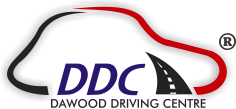Stands for “Personal computer.” PCs are what most of us use on a daily basis for work or personal use. The evolution of personal computers has been a fascinating journey that has revolutionized the way we live and work today. Starting from the first commercially successful personal computer, the Altair 8800 in the mid-1970s, to the sleek and powerful computers we have today, the advancements in technology have been remarkable. These early PCs were limited in their capabilities and required users to have a deep understanding of computer programming to operate them effectively.
Components Of A Personal Computer
It consists of one or more platters that spin at high speeds while a read/write head accesses the data. HDDs are commonly used in desktop PCs, laptops, and workstations, and provide a large amount of storage space at a relatively low cost. Desktop PCs are often used for various tasks, such as browsing the internet, creating and editing documents, playing games, and running software applications. They are known for their reliability, performance, and ability to be customized and upgraded to meet individual needs. It refers to a device that is designed for personal use, such as a laptop or desktop computer.
Its performance and capabilities greatly impact the overall functionality and speed of a computer. Personal computers can be linked to smartphones, tablets, and other devices or peripherals for optimized usability. As we continue to rely on PCs for work, entertainment, and communication, it is essential to appreciate the significance of this acronym.
- The CPU acts as the main processing unit of a computer, handling tasks such as running software applications, executing commands, and managing the system’s resources.
- It is a hardware device that functions as the brain of the computer, performing all the necessary calculations and executing instructions.
- The term PC has become synonymous with computers in general, distinguishing them from other types of devices, such as smartphones or tablets.
- They can connect to the internet through wired or wireless networks, making it easy to access online resources, browse the web, and communicate with others.
Related Terms
It’s important to consider the context in which “PC” is used to understand its intended meaning accurately. The rise of edge computing and 5G connectivity is expected to bring about faster speeds and lower latency, making personal computing devices more powerful and efficient. Overall, laptop PCs offer the convenience of portability while providing the functionality of a desktop computer. Whether it’s for work or leisure, the laptop PC has become an essential device for individuals who require a versatile and portable computing solution. The laptop PC typically has a smaller display screen compared to a desktop PC, which allows for easy transport and mobility.
- Laptops integrate all components into a single unit, including the keyboard and monitor.
- The evolution of computers has been remarkable, with contemporary versions being much more compact and user-friendly compared to their bulky predecessors.
- Hard drives or flash memory provide permanent filing capabilities for programs, files, and operating systems.
Types of PCs: Choosing the Right One
Whether you’re in cybersecurity, running a business, or leading IT infrastructure, understanding the PC full form and its evolution is crucial. These portable computers have a rechargeable battery, keyboard, trackpad and screen attached to a case that contains the storage, RAM, fan and other central components. Laptops are portable, but might have less memory and less powerful processing capabilities. Components are packed tightly in the case for the sake of portability and are often permanently attached. For example, people who play video games often construct gaming PCs that maximize processing power and speed using high-quality processors. For example, laptops and notebooks generally use less power than desktops, but often don’t have as much storage.
The Brief History of Personal Computers
Personal computers, particularly desktops, may also have network connectivity options, but they are not as commonly used in this context. PCs provide a versatile platform that caters to the needs of individuals in different fields. They can be connected to a network, allowing users to access shared resources and communicate with other devices. PCs are also equipped with hardware components, such as memory and storage, to store and process data. To use their computers efficiently, computer users must know the difference between input and output devices.
Evolution of Personal Computers
These processors provide sufficient power for everyday tasks, including web browsing, word processing, and multimedia consumption. Laptop PCs also come with a certain amount of memory (RAM) and storage, allowing users to store and access files, documents, and multimedia content. They provide individuals with the ability to process and store data, access information, and perform various tasks. Whether it’s a desktop, laptop, or compact device, a PC is a powerful tool that has become an integral part of our personal and professional lives.
The software installed on a PC allows users to perform different tasks, such as word processing, gaming, and data analysis. In conclusion, the PC is a powerful tool that has revolutionized the way we work, communicate, and access information. Whether for personal or professional use, PCs offer a versatile platform that enables users to perform a wide range of tasks efficiently and effectively. Furthermore, using a personal computer enhances learning opportunities and access to a vast repository of knowledge on the internet.
The memory enables efficient and quick access to information, enhancing the overall speed and performance of the computer. At its core, a PC consists of a central processing unit (CPU), commonly referred to as a processor. This processor executes instructions and performs calculations, allowing the computer to run different applications and programs.
It is a workstation that combines hardware and software to perform various tasks. PCs are available in different forms, including desktops, laptops, and compact devices. In 1983, the Gavilan Computer Corporation created laptops and mobile devices with built-in rechargeable batteries and keyboards. Laptops differ from desktop computers as they are usually less upgradeable due to components designed specifically for that model, making it harder to update parts within.
This connectivity has revolutionized the way people work, play, and interact with each other, making personal computers an essential tool in today’s digital world. The importance of PCs lies in their ability to handle complex tasks efficiently and effectively. They serve as workstations for professionals in industries such as graphic design, video editing, software development, and scientific research. PCs offer advanced processing power, large storage capacity, and high-speed memory that enable users to run resource-intensive software and handle demanding tasks with ease. In summary, a PC, or personal computer, is a device that combines hardware and software components to provide computational capabilities for individual use. It consists of a processor, memory, and various input and what does a pc stand for output devices, such as a monitor, keyboard, and mouse.
In the 1970s, with microcomputers becoming available to everyday people at more accessible prices, “personal computers” were born. Gaming on these smaller devices that are built for an individual’s use instead of large systems like mainframes or servers, which operate multiple users concurrently. One common misconception about the term “PC” is that it refers exclusively to personal computers running on Windows operating systems.

